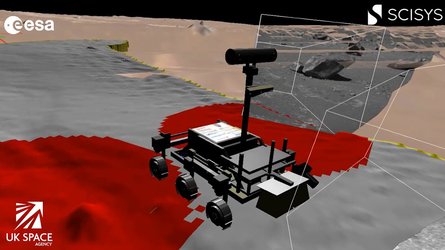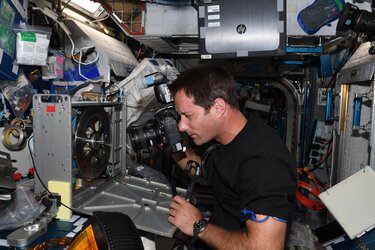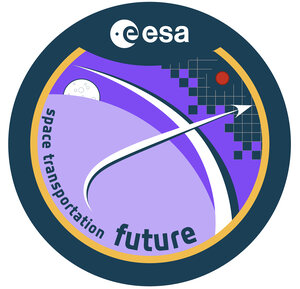Accept all cookies Accept only essential cookies See our Cookie Notice

About ESA
The European Space Agency (ESA) is Europe’s gateway to space. Its mission is to shape the development of Europe’s space capability and ensure that investment in space continues to deliver benefits to the citizens of Europe and the world.
Highlights
ESA - United space in Europe
This is ESA ESA facts Member States & Cooperating States Funding Director General Top management For Member State Delegations European vision European Space Policy ESA & EU Space Councils Responsibility & Sustainability Annual Report Calendar of meetings Corporate newsEstablishments & sites
ESA Headquarters ESA ESTEC ESA ESOC ESA ESRIN ESA EAC ESA ESAC Europe's Spaceport ESA ESEC ESA ECSAT Brussels Office Washington OfficeWorking with ESA
Business with ESA ESA Commercialisation Gateway Law at ESA Careers Cyber resilience at ESA IT at ESA Newsroom Partnerships Merchandising Licence Education Open Space Innovation Platform Integrity and Reporting Administrative Tribunal Health and SafetyMore about ESA
History ESA Historical Archives Exhibitions Publications Art & Culture ESA Merchandise Kids Diversity ESA Brand CentreLatest
Space in Member States
Find out more about space activities in our 23 Member States, and understand how ESA works together with their national agencies, institutions and organisations.
Science & Exploration
Exploring our Solar System and unlocking the secrets of the Universe
Go to topicAstronauts
Missions
Juice Euclid Webb Solar Orbiter BepiColombo Gaia ExoMars Cheops Exoplanet missions More missionsActivities
International Space Station Orion service module Gateway Concordia Caves & Pangaea BenefitsLatest
Space Safety
Protecting life and infrastructure on Earth and in orbit
Go to topicAsteroids
Asteroids and Planetary Defence Asteroid danger explained Flyeye telescope: asteroid detection Hera mission: asteroid deflection Near-Earth Object Coordination CentreSpace junk
About space debris Space debris by the numbers Space Environment Report In space refuelling, refurbishing and removingSafety from space
Clean Space ecodesign Zero Debris Technologies Space for Earth Supporting Sustainable DevelopmentLatest
Applications
Using space to benefit citizens and meet future challenges on Earth
Go to topicObserving the Earth
Observing the Earth Future EO Copernicus Meteorology Space for our climate Satellite missionsCommercialisation
ESA Commercialisation Gateway Open Space Innovation Platform Business Incubation ESA Space SolutionsLatest
Enabling & Support
Making space accessible and developing the technologies for the future
Go to topicBuilding missions
Space Engineering and Technology Test centre Laboratories Concurrent Design Facility Preparing for the future Shaping the Future Discovery and Preparation Advanced Concepts TeamSpace transportation
Space Transportation Ariane Vega Space Rider Future space transportation Boost! Europe's Spaceport Launches from Europe's Spaceport from 2012Latest

Repairing space software with AI
Thank you for liking
You have already liked this page, you can only like it once!
For a spacecraft to carry out its role effectively, not only must all the physical parts, nuts and bolts work well, but so must the onboard software. For this reason, software designed to be sent into space is continually checked from the very beginning of its development.
Ensuring the quality of software inside a spacecraft takes a lot of time and effort. To make the process more efficient, ESA Discovery is supporting a team from Thales Alenia Space to repair software using artificial intelligence following one of the early verification techniques, a process called 'static analysis'.
Arnaud Bourdoux, ESA engineer overseeing the project explains: "Static analysis verification is a part of the flight software development process during which various tools are used to check embedded code against common programming mistakes, quality rules, and dozens of other criteria. Such tools are now a standard part of software development environments, but one of their drawbacks is that their output can be tedious to process."
"The use of AI in this domain may help accelerate the processing of the output from these tools; the AI should be able to suggest corrections for identified problems, as well as recognise the false positives that do not require any modification."
Miguel Fernández, flight software manager at Thales Alenia Space concludes: "Using artificial intelligence will help us develop software for space with increased quality and decreased development time. ESA opened my mind thinking about how to develop software for space more efficiently. Now, with ESA's support, this will lead to new opportunities for onboard software development."
-
CREDIT
ESA -
LICENCE
ESA Standard Licence

Example of an image generated by ESA’s space video s…

Digital eclipse by KU Leuven's simulation software

Remote control team’s view of SAFER rover

Thomas repairing Space Station exercise bike















 Germany
Germany
 Austria
Austria
 Belgium
Belgium
 Denmark
Denmark
 Spain
Spain
 Estonia
Estonia
 Finland
Finland
 France
France
 Greece
Greece
 Hungary
Hungary
 Ireland
Ireland
 Italy
Italy
 Luxembourg
Luxembourg
 Norway
Norway
 The Netherlands
The Netherlands
 Poland
Poland
 Portugal
Portugal
 Czechia
Czechia
 Romania
Romania
 United Kingdom
United Kingdom
 Slovenia
Slovenia
 Sweden
Sweden
 Switzerland
Switzerland

























